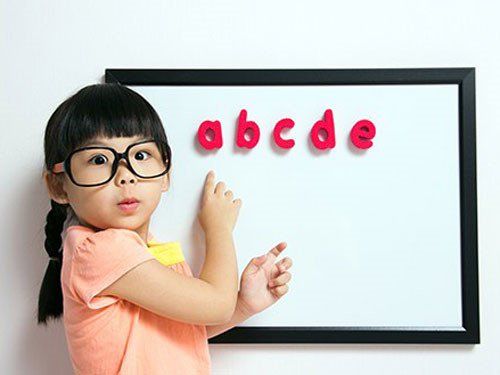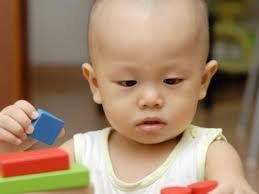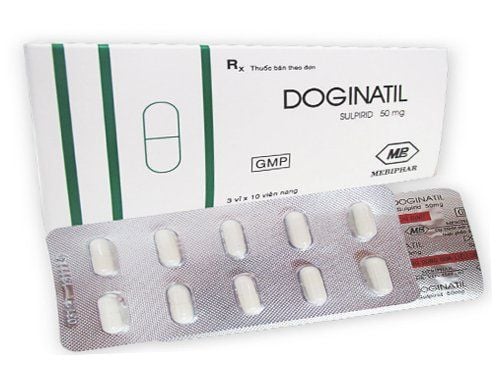This is an automatically translated article.
The article was consulted with Specialist Doctor I Nguyen Thi My Linh - Neonatologist - Department of Pediatrics - Neonatology - Vinmec Danang International General Hospital.There are many reasons that lead to delayed speech in children. However, the most important thing is that parents need to refer to the milestones to check the child's speech delay, identify the signs of abnormal language development of the child to quickly take the child to see a doctor and find the right treatment. fit.
1. When to monitor children with speech delay?
In the process of language development, it is not difficult to recognize that some children are slower to speak than others. Instead of bothering to compare children with other children, parents should conduct monitoring and testing of children with speech delay based on standard language milestones set by reputable agencies.If it is found that the child has not achieved the standard milestones of language development, it is advisable to take the initiative to take the child for a hearing test to rule out hearing loss and find out related causes.
2. Test milestones for children with speech delay
To monitor a child's normal language development and check if a child has a delay in speech, people often rely on the following milestones when a child begins to learn to speak:2.1 Children from 1-2 years old This is the stage. children with diverse linguistic abilities. Children can point to show needs (food, drink) or favorite things (dogs and cats, balloons...), already know how to wave goodbye, know how to imitate animal sounds, know how to use simple words to express intentions, understand when parents say “No” and begin to say simple double words (go out, grandma).
2.2 Children 2-3 years old Children begin to recognize the names of body parts, combine nouns and verbs, use double words proficiently and speak short sentences. At this time, the child's brain has about 450 words and often learns more words through listening to reading stories, repeating words from people around.
2.3 Children from 3-4 years old Know the 4 basic colors (red, yellow, green and blue), know the definition of "big", "small", begin to be curious and ask questions, practice speak sentences of 4-5 words, can tell stories, answer about age, gender. By this time, children have about 1000 words and can sing some simple nursery rhymes.
2.4 Children from 4-5 years old Children have about 1500 words, can say sentences of 4-5 words, have the ability to recognize more colors (orange, pink, purple, black, white), count to 5, curious and asked a lot of questions like “Why?” and “Who is it?”. Children understand what others say and vice versa.
2.5 Children from 5-6 years old The child's vocabulary has increased to about 2000 words, the child can say 5-6 words long sentences, can count to 10, know the right and left hand, know spatial relationship ( above-under, before-after, far-near), recognize “same” and “different”, know home address, be able to use many different kinds of sentences.
Thus, from 1-6 years old is also a golden time to monitor children with speech delay. If the child has abnormal signs, it is necessary to determine whether the problem is from the brain, damage to language structures or from the environment to guide the correct intervention. Because children's brains are flexible and sensitive, the earlier the condition is detected, the more effective it will be to teach children with speech delay later on.

3. Warning signs of language disorders
In addition to testing children for hearing loss leading to speech delay, the American Academy of Pediatrics also recommends that children 18, 24, and 30 months of age be screened for early signs of autism spectrum disorder. through the checklist below.The "red flags" of language and autism spectrum disorders in children aged 0-8 years:
Children 0-3 months: Not responding to sounds, not turning curiously around, or unusual crying, problems with sucking and swallowing. Children 3-6 months: Not happy, curious when interacting socially. Children 6-9 months: Does not babble, tends to be more interested in objects than people. Children 9-12 months: Not paying attention or focusing on anything, indifferent when communicating. Children 12-15 months: Doesn't look and points at people/things when named. Children 18-24 months: Doesn't follow simple commands, doesn't point at relatives when called by name, repeats words they hear. Children 30-36 months: Does not respond to questions by nodding or shaking head, does not ask questions "Why?", "What is it?" , neither follow orders nor understand calls to action. Children 36-48 months: Do not tell stories in the order of beginning and end, do not know how to use prepositions, use inappropriate pronouns. Children 60-72 months: Having inappropriate social behavior, difficulty expressing and retelling events, difficulty expressing opinions even in basic ways. Children 72-96 months: Difficult to understand how to use accents, do not know how to use compound words, use incorrect grammar, do not detect errors in the story. Thus, children with autism spectrum disorder often have problems in expressing language, leading to delayed speech compared to their peers. The "red flags" of autism spectrum disorder are summarized as follows:
Children do not often laugh and play. Babies do not babble or play peek-a-boo by 9 months of age. Babies don't just point, wave, and say goodbye at 12 months old. Babies don't say single words by 16 months and can't say double words by 24 months. Children lose language or social skills most of the time.

4. Effects of speech delay on children
For children at risk of language disorders, the detection and teaching of children with speech delay should be conducted at an early age and pay more attention. If left for a long time, children may face some problems such as:Not understanding what others say. Lack of vocabulary. Express the story but others do not understand. Children lisp. Speak out of context (e.g. repeating the question instead of answering). These language disorders can lead to unwarranted aggression or violence (such as shouting for no reason, hitting friends, throwing things) or making the child shy, clingy, or afraid of others. strange, afraid of crowds, dare not play with friends.
Intervention and teaching children with speech delay as early as possible is highly effective, especially in the first 3 to 5 years of life and parents play a particularly important role in this process. Early detection and intervention will significantly improve children's language ability, help children quickly integrate into the community and have the opportunity to develop normally.
Pediatrics Department - Vinmec International General Hospital is highly appreciated by customers for the quality of examination and treatment. Vinmec is one of the few hospitals that has a full range of doctors specializing in neurology, psychological disorders, endocrinology, nutrition.. right at the Pediatrics Department and supported by specialized specialties. such as Regenerative Medicine treatment and rehabilitation for children with autism and paralysis. In the case of a child with delayed speech due to autism, Vinmec can be successfully treated with the most advanced method in the world. In addition, Vinmec's psychological clinic is capable of deploying psychological tests and intensive psychotherapy for the best medical examination and treatment.
For all medical examination and treatment needs at Vinmec, please register directly at the website or contact the hotline system for detailed advice.
Please dial HOTLINE for more information or register for an appointment HERE. Download MyVinmec app to make appointments faster and to manage your bookings easily.














